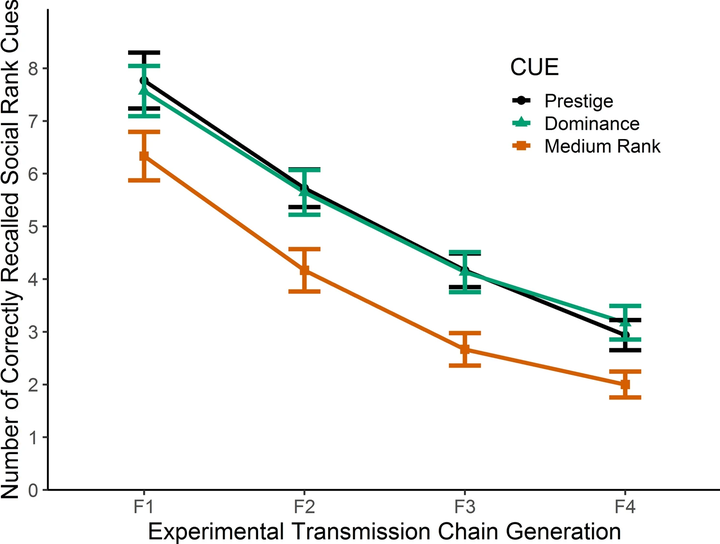The cultural transmission of prestige and dominance social rank cues: An experimental simulation

Abstract
Informal social hierarchies within small human groups are argued to be based on prestige, dominance, or a combination of the two (Henrich & Gil-White, 2001). Prestige-based hierarchies entail the ordering of individuals by the admiration and respect they receive from others due to their competence within valued domains. This type of hierarchy provides benefits for subordinates such as social learning opportunities and both private and public goods. In contrast, dominance-based hierarchies entail the ordering of individuals by their capacity to win fights, and coerce or intimidate others. This type of hierarchy produces costs in subordinates due to its aggressive and intimidating nature. Given the benefits and costs associated with these types of social hierarchies for subordinates, we hypothesised that prestige and dominance cues are better recalled and transmitted than social rank cues that do not elicit high prestige or dominance associations (i.e. medium social rank cues). Assuming that for the majority of the population who are not already at the top of the social hierarchy it is more important to avoid the costs of dominance-based hierarchies than to obtain the benefits of prestige-based hierarchies, we further hypothesised that dominance cues are better transmitted than prestige cues. We conducted a recall-based transmission chain experiment with 30 chains of four generations each (N = 120). Participants read and recalled descriptions of prestigious, dominant, and medium social rank footballers, and their recall was passed to the next participant within their chain. As predicted, we found that both prestige cues and dominance cues were better transmitted than medium social rank cues. However, we did not find support for our prediction of the better transmission of dominance cues than prestige cues. We discuss whether the results might be explained by a specific social-rank content transmission bias or by a more general emotional content transmission bias.